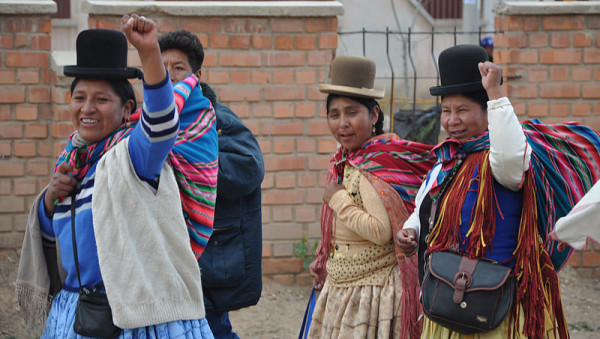The law proposes that Autonomous Municipal Governments will be able to request competent authorities for the “legal adoption of provisional measures, precautionary measures and measures of immediate protection in defence of the rights of women in situations of violence.”
The Bolivian Chamber of Deputies on Wednesday sanctioned the law – previously approved in the Senate – to guarantee Women a violence-free life, the aim of which is to eradicate violence against women in the country, through the joint work of central, regional and municipal governments, the Police and magistrates.
“Modifications to the law guaranteeing women a violence-free life have been approved and thus the law is sanctioned and will be presented to the Executive Organ,” for its promulgation, the president of the Lower Chamber, Lucio Marco, said.
Among the modifications approved is article 25 which states that, “Autonomous Territorial Entities, in the frame of their competencies and financial sustainability, are responsible for the creation, equipping, maintenance and upkeep of Temporary Refuge Homes for women in situations of violence, in urban and rural areas.
Likewise, article 50 states that Autonomous Municipal Governments will be able to request, through the competent authorities the, “legal adoption of provisional measures, precautionary measures and measures of immediate protection in defence of the rights of women in situations of violence.”
Moreover, article 83 increases the punishments from two to eight years in prison, “for anyone who kills another person, including family members, in a state of violent emotion.”
Another modification implemented in article 83 concerns article 308 of the Penal Code that deals with the rape of babies, children and adolescents.
“If the crime of rape is committed against a person of either sex below the age of 14, they will be punished with a sentence of between 20 to 25 years in prison if there has been no use of force or intimidation or where consent is alleged,” the article explains.
The text adds that, “in the case that any of the aggravating circumstances set out in Article 310 of the Penal Code are proven then the sentence will be up to 30 years” and the guilty party will have no right to pardon.
The final change affected article 90, connected to the crimes against public order and it stipulates that, “all of the crimes set out in the present law are crimes of public action.”
In 2012, in Bolivia a woman died every three days through acts of domestic violence, a statistic that grew in the first two months of the current year, according to the Centre of Women’s Studies.










